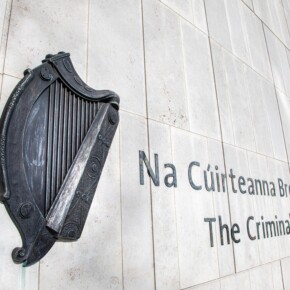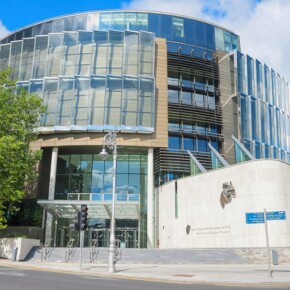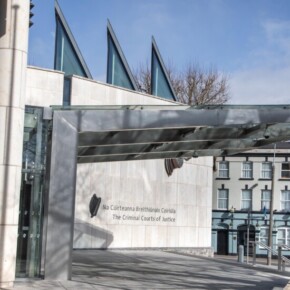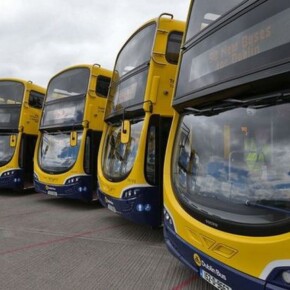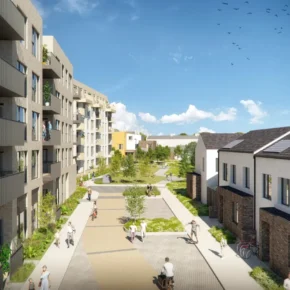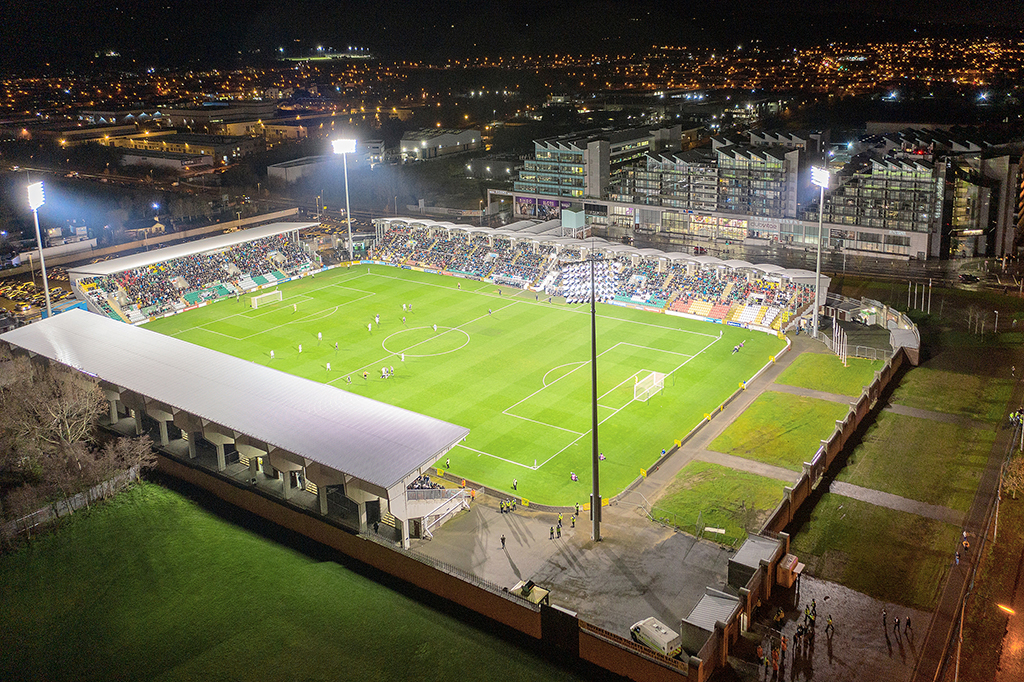Mixed reactions as government scraps Coolock plan
Mike Finnerty 28 May 2025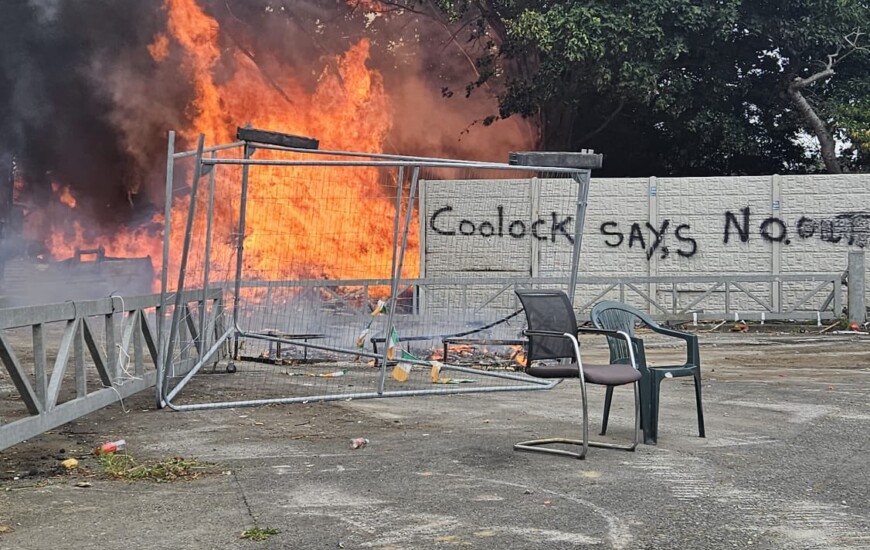
The final few months of the 33rd Dáil were dominated by the immigration issue.
Tensions surrounding immigration came to a head last July over the planned settlement of international protection applicants in the disused paint factory in Coolock.
The events of last July saw over 200 members of the Garda Public Order Unit dispatched to contain a disturbance near the old paint factory.
Over 20 people were arrested after a fire was set near the factory, and the Coolock incident became a flashpoint in Ireland’s debate surrounding immigration.
Nearly a year on, plans to use the Coolock site to house international protection applicants have been dropped by the government.
In a statement, the Department of Justice confirmed to local elected representatives, “we would like to inform you that the Department of Justice is no longer considering the offer of a potential Ipas accommodation centre at the former Crown Paints site in Coolock in Dublin.”
“Since late 2023, a provider had been developing a proposal to convert the site to an Ipas accommodation centre,” it noted.
“The prolonged nature of this particular proposal’s progress through development and planning stages has been a significant factor in the decision to discontinue.”
The letter, which did not directly or implicitly mention the violence of last July, reads “consideration is also given to the location and locality, access to services, resident welfare, health and wellbeing, and the current level of need in the sector.”
Nonetheless, news of the Department’s decision was greeted by a wide range of reactions across the political spectrum.
Local Sinn Féin TD Denise Mitchell said “the government should never have put the community in Coolock through what we have experienced over the last year. It never made sense to propose putting international protection accommodation at the former Crown Paints facility.”
“This is a community that has been ignored and abandoned by the government for decades. It never got the investment, the services or the facilities that the people of this community deserve. The government must take responsibility for what this community has been unnecessarily put through over the last year. It should never have happened,” she said.
Mitchell put the blame on the issue squarely on Fianna Fáil and Fine Gael’s shoulders, saying “under Fianna Fáil and Fine Gael, the only criteria in determining where accommodation for international protection would be located was where private interests seeking to profit from a dysfunctional system had a property which was often unsuitable, like the former Crown Paints factory, that they wanted to turn into IPAS accommodation.
“Sinn Féin has been very clear. New IPAS centres should only be placed in areas which are best resourced to accommodate them. That means not in areas that are already struggling in terms of lack of resources.”
Mitchell referred to Sinn Féin’s plan to use the Pobal HP Deprivation Index as the basis on which to place IPAS centres.
“Our migration and international protection system remains a mess. We need a system that is fit for purpose – a system that works in a timely manner and enforces decisions,” she said.
Local Fianna Fáil councillor Daryl Barron said, “over the last 12 months, I have tried to engage with all the local communities and seek guidance from the community involved, arranging meetings with key stakeholders to get this to this conclusion.”
“The building of former Crown Paints was not a suitable option for anyone seeking accommodation. This decision will put an end to speculation and will be a relief for many local residents. The Department of Justice in recent months have been conducting a review on this situation,” he stated.
Since the government took office in January, the Fianna Fáil-led Department of Justice has shown a slight shift on migration policy, stepping up chartered deportation flights and comments from Minister for Justice Jim O’Callaghan stating “too many people are coming to Ireland seeking international protection, who are not entitled to international protection.”
Local Labour MEP Aodhán Ó Ríordáin said the government walking back on the Coolock plan was a “debacle” and that an inquiry must be set up.
“What has been lost here is any sort of coherent, well-thought-out strategy from the Department of Justice,” Ó Ríordáin said.
“For the past two years, the handling of the Crown Paints site has been nothing short of chaotic. The situation has caused deep frustration and anger in the community.”
“The Minister and the Department of Justice must now instigate an inquiry into how this was so poorly handled.”
As recently as last August, then-Minister for Integration Roderic O’Gorman said the government “has a duty” to provide people with accommodation.
The Green leader dismissed comments from Sinn Féin that IPAS centres were being placed in working-class areas.
“We have international protection accommodation in working-class areas, and we have it in middle-class areas as well. We have accommodation all over the country at this stage,” he told RTÉ last August.
Among opposition parties, there is clear tension on how to handle the issue of immigration.
Last Wednesday (21), local Labour TD Duncan Smith expressed disappointment with Sinn Féin for backing a government plan to cut financial support for Ukrainian refugees.
Smith said, “putting the blame on Ukrainians is cynical and exploitative,” in response to comments by Sinn Féin TD Matt Carthy that the payment scheme was “unfair.”
The Dublin Fingal East TD commented, “the government is taking a huge risk by cutting this payment; it could have major ramifications in the private rental sector if more Ukrainians have to find accommodation there.”
“Internal government memos show there is a real risk that it could result in higher costs if more commercial accommodation is needed.”
Local Social Democrats TD Gary Gannon said, “we need compassion to remain the cornerstone of our refugee response. We will not support the planned government cut (cutting host supports from €800 to €600 a month), and we will not support Sinn Féin’s amendment (which would end the practice for new refugees entering Ireland).
“We think we should protect what works and maintain sensible schemes that encourage integration rather than isolation,” the Dublin Central TD said.
Gannon said, “this proposed reduction in the accommodation recognition payment from €800 to €600 a month is not just a bureaucratic tweak, it is a deeply short-sighted move that will hurt the very people we have asked to step up.”
Speaking in the aftermath of last July’s violence, Gannon’s Soc Dem colleague and Dublin Bay North TD Cian O’Callaghan said, “those who preach division, hate and violence have nothing constructive to offer.”
Northside People Before Profit councillor Conor Reddy said, “people need to be mindful of what they see online.”
The Dublin City Council member said, “in recent months, false rumours have been spread about properties in Dublin and across the country.”
“In almost every case, the claims were false and circulated by faceless social media accounts. It is a small group of agitators—far-right organisers, loyalist-linked elements, and others spreading lies to whip up anger and fear to try to divide us.”


